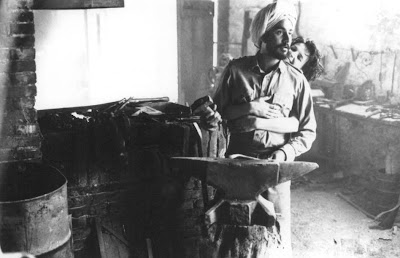Bhai Manjh ji
In the time of Guru Arjan Dev jee, there was a powerful and rich man by the name of Teeratha. Teeratha was a follower of the Muslim sect of Sakhee Sarvar(who use to worship Pirkhana [tomb]) . He was the local leader of this sect and had hundreds of followers who all respected him. Teeratha would regularly lead the members of this sect on a pilgrimage to the main Sakhee Sarvar shrine (now in Pakistan). Once he saw a large number of turbaned people, who were doing service with great zeal. He noted that they were reciting some Shabad (hymns), along with doing sewa (service), in a very melodious tone. When he went further, he saw the Langer (food) being cooked and served to everybody irrespective of any distinction. The devotion and enthusiasm of the people impressed Bhai Manjh, who felt a pull of love strings in his heart. He felt instant peace, solace and equipoise on listening to the divine hymns being sung there. The holy congregation was in the presence of the Guru Sahib himself. The


